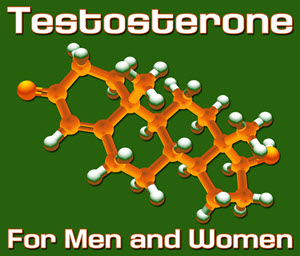Introduction
Low testosterone levels, often referred to as "Low T," have become a prevalent concern among American males. This condition can lead to a myriad of health issues, including decreased libido, fatigue, and mood disturbances. Recent studies have highlighted a significant correlation between obesity and reduced testosterone levels. This article explores the benefits of weight loss on testosterone levels, specifically tailored to American males grappling with low testosterone.
Understanding Low Testosterone
Testosterone is a crucial hormone responsible for the development of male reproductive tissues and the maintenance of secondary sexual characteristics. Low testosterone can manifest in various symptoms, such as reduced muscle mass, increased body fat, and diminished sexual function. According to the American Urological Association, approximately 2.4 million American men suffer from low testosterone, a number that is steadily increasing with the rising obesity rates in the country.
The Link Between Obesity and Low Testosterone
Obesity is a well-documented risk factor for low testosterone. Adipose tissue, or body fat, can convert testosterone into estrogen, leading to an imbalance in hormone levels. A study published in the *Journal of Clinical Endocrinology & Metabolism* found that men with a body mass index (BMI) over 30 had significantly lower testosterone levels compared to their leaner counterparts. This hormonal imbalance can exacerbate the symptoms of low testosterone, creating a vicious cycle of weight gain and declining testosterone.
The Impact of Weight Loss on Testosterone Levels
Weight loss has been shown to be an effective strategy for improving testosterone levels in obese men. A meta-analysis conducted by the *European Journal of Endocrinology* demonstrated that a weight loss of just 10% could lead to a significant increase in testosterone levels. This improvement is attributed to the reduction in adipose tissue, which in turn decreases the conversion of testosterone to estrogen.
Practical Steps for Weight Loss
For American males looking to boost their testosterone levels through weight loss, adopting a comprehensive approach is essential. Here are some practical steps:
1. **Dietary Modifications**: Incorporating a balanced diet rich in lean proteins, whole grains, and healthy fats can aid in weight loss. Reducing the intake of processed foods and sugars is crucial.
2. **Regular Exercise**: Engaging in both aerobic and resistance training can enhance weight loss efforts. Exercise not only burns calories but also boosts testosterone production directly.
3. **Lifestyle Changes**: Adequate sleep and stress management are vital components of a successful weight loss plan. Chronic stress and sleep deprivation can negatively impact hormone levels.
Case Studies and Real-Life Examples
Several case studies have illustrated the positive impact of weight loss on testosterone levels. For instance, a study at the University of California followed a group of obese men who participated in a 12-week weight loss program. Participants experienced an average weight loss of 15%, which correlated with a 50% increase in testosterone levels. These findings underscore the potential of weight loss as a non-pharmacological intervention for low testosterone.
Conclusion
The relationship between weight loss and testosterone levels is a critical consideration for American males dealing with low testosterone. By addressing obesity through diet, exercise, and lifestyle changes, men can not only improve their overall health but also enhance their testosterone levels. As the prevalence of low testosterone continues to rise, understanding and implementing these strategies can offer a promising path to better health and well-being.
In summary, weight loss stands as a powerful tool in the fight against low testosterone. American males should consider this approach as a first line of defense before resorting to more invasive treatments. By taking proactive steps towards a healthier lifestyle, men can reclaim their vitality and improve their quality of life.
Contact Us Today For A Free Consultation

- Environmental Toxins and Testosterone: Impacts and Mitigation Strategies for American Men [Last Updated On: March 9th, 2025] [Originally Added On: March 9th, 2025]
- Low Testosterone in American Males: Symptoms, Causes, and Treatment Options [Last Updated On: March 16th, 2025] [Originally Added On: March 16th, 2025]
- Low Testosterone's Impact on Muscle Mass and Strength in American Males [Last Updated On: March 16th, 2025] [Originally Added On: March 16th, 2025]
- Vitamin D's Role in Managing Low Testosterone in American Men: A Comprehensive Review [Last Updated On: March 16th, 2025] [Originally Added On: March 16th, 2025]
- Chronic Illness Impact on Low Testosterone in American Males: Management Strategies [Last Updated On: March 18th, 2025] [Originally Added On: March 18th, 2025]
- Managing Low Testosterone in Aging Men: Symptoms, Treatments, and Lifestyle Strategies [Last Updated On: March 18th, 2025] [Originally Added On: March 18th, 2025]
- Economic Burden of Low Testosterone on American Healthcare System [Last Updated On: March 19th, 2025] [Originally Added On: March 19th, 2025]
- Low Testosterone and Diabetes: Dual Challenges Impacting American Men's Health [Last Updated On: March 19th, 2025] [Originally Added On: March 19th, 2025]
- Alcohol Consumption and Its Impact on Testosterone Levels in American Men [Last Updated On: March 19th, 2025] [Originally Added On: March 19th, 2025]
- Zinc's Role in Boosting Testosterone Levels in American Men: A Comprehensive Review [Last Updated On: March 20th, 2025] [Originally Added On: March 20th, 2025]
- Low Testosterone and Mood Disorders: Impact and Management in American Men [Last Updated On: March 21st, 2025] [Originally Added On: March 21st, 2025]
- Low Testosterone in American Men: Symptoms, Diagnosis, and Treatment Strategies [Last Updated On: March 21st, 2025] [Originally Added On: March 21st, 2025]
- Smoking's Impact on Testosterone Levels in American Men: Risks and Recovery [Last Updated On: March 21st, 2025] [Originally Added On: March 21st, 2025]
- Low Testosterone's Impact on Osteoporosis Risk in American Men: Detection and Management [Last Updated On: March 22nd, 2025] [Originally Added On: March 22nd, 2025]
- Low Testosterone and Prostate Health: Risks, Therapy, and Management Strategies [Last Updated On: March 22nd, 2025] [Originally Added On: March 22nd, 2025]
- Low Testosterone and Hair Loss: Understanding the Link and Management Strategies [Last Updated On: March 22nd, 2025] [Originally Added On: March 22nd, 2025]
- Low Testosterone's Impact on Cognitive Function in American Men: Insights and Interventions [Last Updated On: March 22nd, 2025] [Originally Added On: March 22nd, 2025]
- Shift Work's Impact on Testosterone Levels in American Men: Health Implications and Mitigation [Last Updated On: March 22nd, 2025] [Originally Added On: March 22nd, 2025]
- Low Testosterone's Impact on Immune Health in American Males: Insights and Management [Last Updated On: March 23rd, 2025] [Originally Added On: March 23rd, 2025]
- Optimizing Testosterone Levels: Dietary Strategies for American Men [Last Updated On: March 23rd, 2025] [Originally Added On: March 23rd, 2025]
- Low Testosterone in American Men: Symptoms, Impact, and Treatment Options [Last Updated On: March 23rd, 2025] [Originally Added On: March 23rd, 2025]
- Environmental Estrogens: A Hidden Cause of Low Testosterone in American Males [Last Updated On: March 23rd, 2025] [Originally Added On: March 23rd, 2025]
- Low Testosterone's Impact on Skin Health in American Men: Causes and Management [Last Updated On: March 24th, 2025] [Originally Added On: March 24th, 2025]
- Herbal Supplements for Low Testosterone: Benefits, Limitations, and Efficacy in American Men [Last Updated On: March 24th, 2025] [Originally Added On: March 24th, 2025]
- Managing Low Testosterone in Aging Men: Symptoms, Treatments, and Lifestyle Strategies [Last Updated On: March 25th, 2025] [Originally Added On: March 25th, 2025]
- Low Testosterone and Heart Disease: Risks, Mechanisms, and Management in American Men [Last Updated On: March 25th, 2025] [Originally Added On: March 25th, 2025]
- Chronic Stress Impact on Testosterone Levels in American Men: Causes and Management Strategies [Last Updated On: March 25th, 2025] [Originally Added On: March 25th, 2025]
- Low Testosterone's Impact on Emotional Wellbeing in American Men: Insights and Guidance [Last Updated On: March 25th, 2025] [Originally Added On: March 25th, 2025]
- Low Testosterone and Depression: Understanding the Link and Its Impact on American Men [Last Updated On: March 25th, 2025] [Originally Added On: March 25th, 2025]
- Sleep Apnea's Impact on Testosterone Levels in American Males: Insights and Solutions [Last Updated On: March 25th, 2025] [Originally Added On: March 25th, 2025]
- Medications Impacting Testosterone Levels: Insights for American Men [Last Updated On: March 25th, 2025] [Originally Added On: March 25th, 2025]
- Low Testosterone and Metabolic Syndrome: Implications for American Men's Health [Last Updated On: March 25th, 2025] [Originally Added On: March 25th, 2025]
- Chronic Pain's Impact on Testosterone Levels in American Males: A Comprehensive Analysis [Last Updated On: March 26th, 2025] [Originally Added On: March 26th, 2025]
- Genetic Factors in Low Testosterone Among American Males: Insights and Implications [Last Updated On: March 26th, 2025] [Originally Added On: March 26th, 2025]
- Low Testosterone Linked to Increased Thyroid Disorder Risk in American Men [Last Updated On: March 26th, 2025] [Originally Added On: March 26th, 2025]
- Low Testosterone and Insulin Resistance: Exploring the Link in American Men [Last Updated On: March 26th, 2025] [Originally Added On: March 26th, 2025]
- Exercise Boosts Testosterone: A Guide for American Men [Last Updated On: March 26th, 2025] [Originally Added On: March 26th, 2025]
- Low Testosterone and Libido: Impacts, Diagnosis, and Treatment for American Men [Last Updated On: March 26th, 2025] [Originally Added On: March 26th, 2025]
- Low Testosterone's Impact on Body Composition in American Males: Challenges and Management [Last Updated On: March 27th, 2025] [Originally Added On: March 27th, 2025]
- Low Testosterone and Skin Health: Dermatological Impacts and Management in American Men [Last Updated On: March 27th, 2025] [Originally Added On: March 27th, 2025]
- Chronic Inflammation and Low Testosterone: Strategies for American Males [Last Updated On: March 27th, 2025] [Originally Added On: March 27th, 2025]
- Nutrition's Impact on Testosterone: Deficiencies and Dietary Solutions for American Males [Last Updated On: March 27th, 2025] [Originally Added On: March 27th, 2025]
- Respiratory Health's Impact on Testosterone Levels in American Males [Last Updated On: March 27th, 2025] [Originally Added On: March 27th, 2025]
- Testosterone's Role and Managing Low Levels in American Men [Last Updated On: March 28th, 2025] [Originally Added On: March 28th, 2025]
- Low Testosterone Linked to Anemia Risk in American Men: Insights and Management [Last Updated On: March 28th, 2025] [Originally Added On: March 28th, 2025]
- Low Testosterone Linked to Autoimmune Diseases in American Men: Insights and Management [Last Updated On: March 28th, 2025] [Originally Added On: March 28th, 2025]
- Liver Health Crucial for Testosterone Balance in American Males [Last Updated On: March 29th, 2025] [Originally Added On: March 29th, 2025]
- Gut Health and Testosterone: Optimizing Hormonal Balance in American Males [Last Updated On: March 29th, 2025] [Originally Added On: March 29th, 2025]
- Low Testosterone Linked to Increased Kidney Disease Risk in American Men [Last Updated On: March 30th, 2025] [Originally Added On: March 30th, 2025]
- Low Testosterone Linked to Neurological Risks in American Men: Implications and Interventions [Last Updated On: March 30th, 2025] [Originally Added On: March 30th, 2025]
Word Count: 591





















